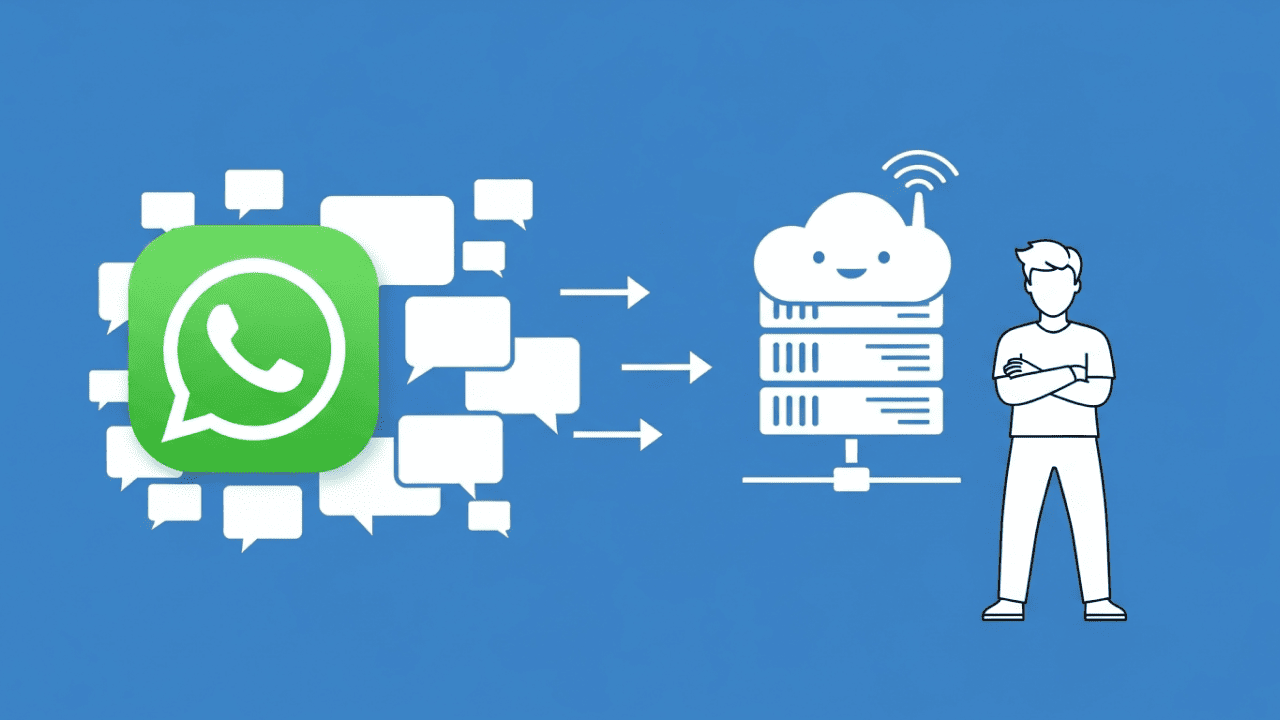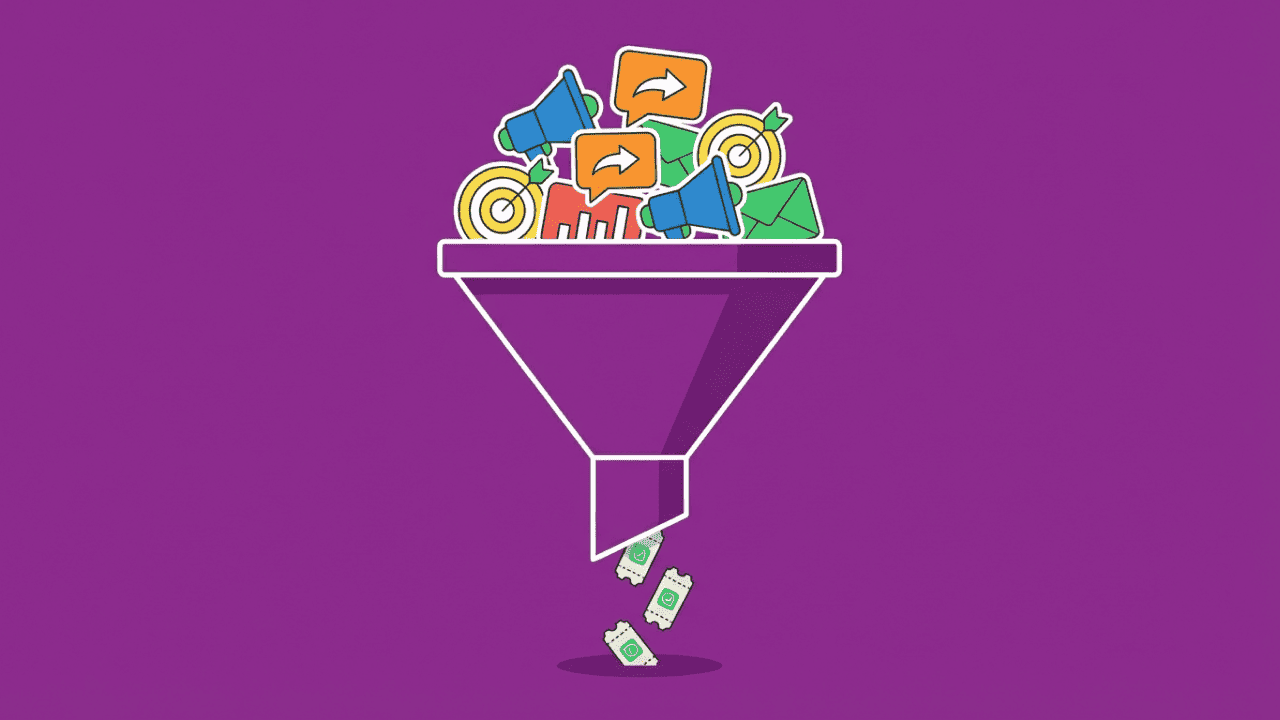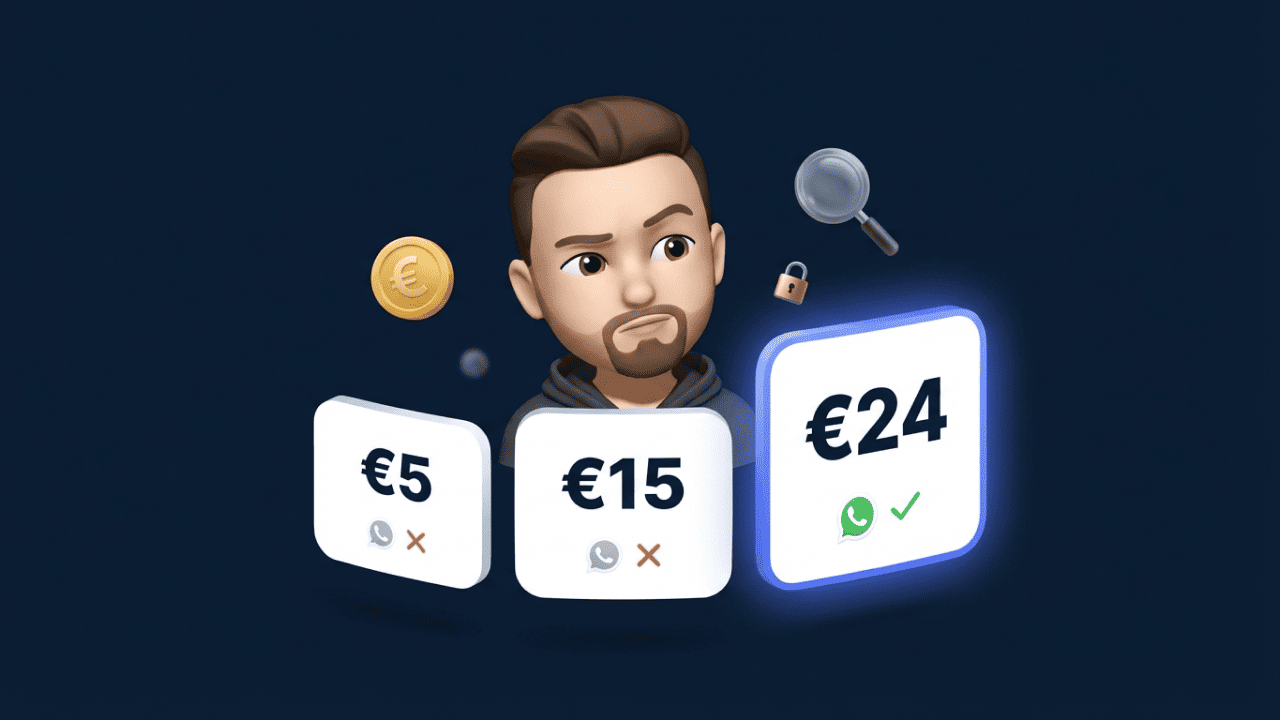Customer service chatbots are standard. The question isn't whether to use one – it's which one. According to Mordor Intelligence, the market will grow to $11.45 billion in 2026. 96% of customers expect support around the clock.
The problem: Most "chatbots" are glorified FAQ pages. They answer – nothing more. A modern AI agent does more: It solves problems, changes addresses in your system, initiates returns. The Klarna effect shows the potential: One AI agent took over the work of 700 employees.
Overview: The 10 Best Customer Service Chatbots 2026
| Rank | Tool | Strengths | Best for | Key details |
|---|---|---|---|---|
| 1 | Chatarmin | WhatsApp-first, AI agents with real actions, GDPR & EU AI Act compliant | E-commerce, DTC brands, European market | E-commerce specialist: Native Shopify/Klaviyo integration, live in days not months |
| 2 | Zendesk AI | Powerful suite, strong reporting, enterprise features | Large enterprises with complex structures | Note: Often overkill for pure e-commerce shops. Setup takes weeks to months, high license costs |
| 3 | Intercom | Conversational UI, no-code builder, in-app messaging | SaaS, tech startups | Watch the pricing: Pay-per-resolution can get expensive at high volume |
| 4 | Salesforce Agentforce | Deep CRM integration, enterprise scaling | Corporations with existing Salesforce stack | Complexity: Often requires dedicated admins. Usually oversized for Shopify shops |
| 5 | Freshchat | Omnichannel, "Freddy" AI, solid mid-market option | Mid-sized businesses, multichannel | Good solution, but not a WhatsApp specialist |
| 6 | Tidio | Easy setup, Shopify app, affordable entry point | Small shops with limited budget | Quick start, but limited AI features and integration depth |
| 7 | Heyday (Hootsuite) | E-commerce focus, product recommendations | Fashion, home & living | Strong on product data, but Hootsuite dependency |
| 8 | Ada | Enterprise scaling, strong reasoning engine | Large enterprises with millions of inquiries | Powerful, but pricing unrealistic for most DTC brands |
| 9 | Userlike | German provider, GDPR focus, Lime Connect | SMBs with German customer base | More chat-widget focused, WhatsApp features less mature than specialists |
| 10 | Chatfuel | Facebook & Instagram Messenger, simple flows | Social commerce, small shops | Only makes sense if social media is your primary channel |
Pro tip: Choosing the right tool isn't about company size – it's about channels. If WhatsApp is your most important customer touchpoint (and it is for most DTC brands), you need a specialist – not a generalist.
What Is a Customer Service Chatbot – and What Should It Actually Do in 2026?
A customer service chatbot is software that automatically answers customer inquiries. So far, so familiar. But in 2026, that's no longer enough.
The distinction you need to know:
Rule-based bots (outdated): Work with decision trees. Customers click through predefined options. Works for "What are your opening hours?" – fails at everything else. These bots are the digital version of a phone menu. Nobody likes phone menus.
AI chatbots with NLP: Understand natural language. Can interpret open questions. Much better, but they still only give answers. They tell you that you can change your delivery address – but you have to do it yourself.
AI Agents with reasoning engine (2026 standard): This is the crucial step. An AI agent doesn't just understand the question – it thinks, plans steps, and executes the action. Customer writes "I want to ship my order to a different address," the agent changes the address in the Shopify backend. Done. No ticket, no manual intervention.
What Is a Reasoning Engine?
The term is everywhere in 2026 – at Zendesk, Ada, and with us too. What's behind it?
A reasoning engine is the "brain" of an AI agent. Instead of just retrieving text blocks, the agent goes through a thinking process:
Understand: What does the customer actually want?
Plan: What steps are needed to solve the problem?
Act: Which systems do I need to access, what data to retrieve or change?
Verify: Did the action work?
This distinguishes a real AI agent from a "dumb" bot that only does pattern matching. The reasoning engine makes the difference between "I don't understand you" and "Done, your new address is saved."
How AI Agents Work Technically: RAG Explained
Behind modern AI agents is usually RAG – Retrieval Augmented Generation. Sounds complicated, but it isn't.
Here's how it works: The bot combines two things. First: It accesses your company's own data – product info, FAQs, return policies, everything in your knowledge base. Second: It uses the language capabilities of a Large Language Model (LLM) to formulate natural-sounding responses.
The key advantage: The bot doesn't "hallucinate." It doesn't invent information because it's limited to your actual data. If a customer asks about a product that doesn't exist, the bot says so – instead of making up an answer.
For e-commerce, this means: Reliable answers that fit your shop. No embarrassing moments where the bot talks nonsense.
Why You Can't Do Without an AI Agent in Support in 2026
1. Your Customers Expect Instant Solutions – Not Stalling
96% of customers expect support around the clock. But "support" doesn't mean a bot saying at 11 PM "A team member will get back to you tomorrow." That's not support. That's a stalling widget.
Here's a number that surprises many: Zendesk studies show that 51% of customers already prefer a bot for urgent issues – if it solves the problem immediately. Customers don't want to wait. They want results.
An AI agent delivers that. It cancels the order at 11 PM, tracks the package, answers the return question. The customer goes to sleep satisfied. Your support team arrives in the morning without a mountain of tickets.
2. The Cost Calculation Is Clear
A support interaction with a human agent costs between $5 and $15. An AI agent handles the same inquiry for under $1. For routine inquiries – and those make up 60-80% of volume – it's a clear case.
The Klarna case shows the extreme: One AI agent took over the work of 700 employees. That's not the goal for every shop – but it shows the potential. Even if you "only" automate 50% of your inquiries, we're talking significant savings.
But careful: It's not about replacing humans. It's about letting your team focus on cases that truly need human attention. Complex complaints. Upset customers. Upselling conversations. These are the moments where humans make the difference.
3. Peak Season Isn't Getting Easier
Black Friday, Cyber Monday, holiday season – that means: 5x more inquiries with the same team size. Without automation, that means either "we temporarily hire 20 people" or "response times explode." Both cost you money and reputation.
An AI agent scales with you. Whether 100 or 10,000 simultaneous inquiries – response time stays at seconds. Your team handles escalations, the bot handles the rest.
Pro tip: The best time to introduce an AI agent isn't during peak season – it's 2-3 months before. That gives you time to optimize.
WhatsApp Is THE Channel – Not One of Many
Let's be clear: Email in customer service is a relic in 2026. 20% open rate. Responses take hours or days. Customers hate it.
WhatsApp has 3 billion users worldwide. The numbers speak for themselves:
98% open rate (vs. 20% for email)
Responses are expected in minutes – and with AI agents, delivered
Asynchronous communication: Customer writes when convenient, gets an immediate response
With 98% open rates, WhatsApp is the most efficient channel for direct customer contact. That's not a marketing statement – it's math. If you send 100 emails, 20 people read them. If you send 100 WhatsApp messages, 98 read them.
The classic chat widget on your website has its place. But customers are elsewhere. They're on WhatsApp. If your WhatsApp chatbot isn't present there, you're missing the most direct line to your customers.
The difference between WhatsApp marketing and email marketing is especially clear in support: Faster response, higher customer satisfaction, less friction.
Selection Criteria 2026: What Must a Customer Service Chatbot Do Today?
Not every bot fits every company. But these criteria are non-negotiable in 2026:
1. Real Integrations – Not Just "API Available"
The bot must work in your tech stack, not alongside it. And here's an important difference between generalists and specialists:
Enterprise tools like Zendesk or Salesforce can theoretically do everything. In practice, you often need consultants, several weeks of setup, and a dedicated team for maintenance.
For e-commerce brands, the faster path is: A solution that brings native integrations for your stack.
Shopify/WooCommerce: Retrieve order status, change addresses, create returns – without custom development
Klaviyo/Emarsys: Sync customer data, use segments
Zendesk/Gorgias: Create tickets, hand over conversations seamlessly
ERP systems: Check inventory, provide delivery times
A bot that only says "I'll forward this" is 2025. A bot that solves the problem is 2026.
2. No-Code for Marketing and Support
Your IT team has other things to do. The people who use the bot daily – support, marketing – must be able to customize it themselves. Add new answers, change flows, set triggers. Without developers, without tickets to the tech team.
3. GDPR and EU AI Act Compliance
This isn't "nice to have" for European companies. It's mandatory.
The EU AI Act has been fully in effect since 2025/2026. Customer service chatbots usually fall under "limited risk" – but the transparency requirement applies: Customers must know they're talking to an AI.
As a European provider with EU hosting, this is a real advantage over US tools. No data transfers to third countries, no uncertainty during audits. For European companies, this should be a decision criterion.
4. Human Handover – Because AI Can't Do Everything
The best AI agent knows when it's stuck. Complex complaint? Upset customer? Technical problem outside the knowledge base?
In these cases, the handover to a human must work smoothly. With full context: What did the customer write, what did the bot answer, what actions were already taken. The human agent takes over without the customer having to repeat everything.
Case Studies: How E-Commerce Companies Use AI Agents
Theory is good. Practice is better. Here are concrete examples of companies working with Chatarmin:
waterdrop: Scaling Without Staffing Explosion
waterdrop faced a classic problem: Strong growth, but support costs grew faster than revenue. With AI agents on WhatsApp, they now automate the majority of standard inquiries – order status, product questions, delivery times. The support team focuses on consultation and complex cases.
BitterLiebe: Structured Customer Communication
BitterLiebe uses WhatsApp marketing not just for campaigns, but also for structured support. Automated flows guide customers through frequent questions about products and usage. The result: Fewer follow-up questions, higher satisfaction, shorter processing times.
PAPER & TEA: Premium Experience Automated
PAPER & TEA shows that automation and premium standards aren't contradictory. The customer experience stays high-quality – but the AI agent handles repetitive inquiries. The team has more time for personal consultation on complex tea questions.
BEMS Home: Service Flows for Furniture
BEMS Home sells furniture – an area with many questions about delivery times, assembly, and returns. Automated service flows catch these inquiries. Especially during peak times like furniture fairs or sales, this prevents the team from drowning.
Rain Couture: Welcome Automation for Fashion
Rain Couture uses WhatsApp newsletters combined with automated welcome flows. New customers are greeted, frequent questions about sizes and materials are answered immediately. This creates a good experience from the first contact.
Implementation: How to Start Without Overhauling Everything at Once
You don't need the perfect AI agent right away. Start pragmatically:
Phase 1: MVP with the Most Frequent Inquiries Analyze your ticket system: What 10 questions come up most often? "Where's my package?", "How do returns work?", "When will product X be available again?". Automate these questions first. That alone measurably relieves your team.
Pro tip: Start with the top 10 FAQs, not the complete support catalog. 80% of relief comes from 20% of inquiries.
Phase 2: Activate Integrations Once the bot answers questions, connect it to your systems. Shopify connection for order status, CRM for customer data, ERP for delivery times. Now the bot can not only answer but retrieve information in real-time.
Phase 3: Enable Actions The final step: The bot executes actions. Change address, create return, generate coupon. This requires deeper integrations and clear rules about what the bot is allowed to do – but this is where real value is created.
Continuously: Learn and Optimize No bot is perfect on day one. Use analytics to see: What questions can't it answer? Where does the flow break? Where do humans take over – and why? These insights make the bot better over time.
Technology Stack: What's Under the Hood
For the technically interested – these are the building blocks of a modern customer service chatbot:
Natural Language Processing (NLP): Enables understanding of free text. Customers don't have to phrase things exactly, the bot understands the intent – even with colloquialisms or dialects.
Large Language Models (LLMs): Provide natural, human-sounding responses. No "I didn't understand you, please select an option."
RAG (Retrieval Augmented Generation): Combines LLM capabilities with company-owned data. The bot answers based on your knowledge base, not based on internet knowledge.
Reasoning Engine: The "planning center" of the AI agent. Enables multi-step problem solving instead of simple pattern matching.
API Integrations: Connect the bot to your tech stack. Without APIs, the bot remains an island.
Guardrails: Rules that prevent the bot from answering outside its competencies or talking nonsense.
Conclusion: The Customer Service Chatbot 2026 Is an AI Agent That Acts
The days when a chatbot impressed because it could say "Hello" are over. In 2026, customers expect solutions, not answers. They don't want to hear that they should write an email. They want their problem solved. Now.
A modern AI agent delivers exactly that. It's available 24/7, speaks your customers' language (including on WhatsApp), accesses real data, and executes real actions. Your support team is relieved, your customers are happier, your costs decrease.
But: Not every bot can do this. Most can't. Before you choose a solution, ask the right questions: Can the bot execute actions in my shop? Is it GDPR and EU AI Act compliant? Does it work on WhatsApp? Can my team customize it without IT?
Want to see what this looks like for your shop? Book a demo and we'll show you what's possible with AI agents.
FAQ: Frequently Asked Questions About Customer Service Chatbots
What's the difference between an AI agent and a classic chatbot?
A classic chatbot gives answers based on predefined rules. An AI agent goes further: It uses a reasoning engine to understand complex inquiries, independently plans solution steps, and executes actions in your systems – like changing an address in Shopify. The difference: Answering vs. acting.
How quickly can I implement a customer service chatbot?
For an MVP with the most common FAQ answers: a few days to weeks. For a fully integrated AI agent with Shopify, CRM, and ERP connections: several weeks, depending on the tech stack. With specialized e-commerce solutions like Chatarmin, this goes significantly faster than with enterprise generalists.
Do I need a hybrid approach with human support?
Yes. No AI agent can solve every case – and it shouldn't. Complex complaints, emotional conversations, upselling: Humans are better here. A good bot knows when to hand over. The art lies in combination: Bot for volume and routine, human for quality and relationship.
How do I ensure the bot is GDPR compliant?
Look for EU hosting, transparent data processing, and a provider who knows the EU AI Act. Chatbots must disclose that they're AI – that's been mandatory since 2025/2026. European providers meet these requirements by default. With US tools, it gets more complicated.
What measurable results can I expect?
Typical results after 3-6 months: 50-70% of routine inquiries automated, response time reduced from hours to seconds, cost-per-ticket significantly lowered, CSAT scores improved. Exact numbers depend on your starting point – but the direction is the same for all companies.
Does a chatbot work for small shops too?
Yes, but ROI depends on volume. Even small teams benefit from being available 24/7 without putting anyone on night shifts. For small shops, simpler solutions are a starting point. Once volume grows or WhatsApp becomes important, upgrading to specialized tools makes sense.
What does developing an AI chatbot cost in 2026?
The range is huge: From low-code solutions starting at a few hundred dollars monthly to enterprise custom projects over $100,000. The advantage of SaaS solutions like Chatarmin: You pay a monthly fee and save development costs entirely. No agency, no developer team needed.
Do AI chatbots understand dialects or slang?
Yes. Thanks to LLMs, modern AI agents understand context, slang, and even typos almost like humans. "wheres my package at??" works just as well as "Could you please inform me of my order's current location?". That's a huge improvement over older bots.
How do I prevent the AI from giving wrong answers (hallucinations)?
Through RAG technology and strict guardrails. RAG limits the bot to your company's own data – it doesn't invent anything. Guardrails are rules that prevent the bot from answering outside its competencies. If it doesn't know something, it says so honestly instead of guessing.
Can chatbots trigger actions in CRM or shop systems?
Yes – and that's exactly what distinguishes AI agents from simple chatbots. Modern solutions can directly change data in systems like Shopify, Salesforce, or HubSpot: Update addresses, create returns, generate coupons. This requires appropriate integrations, but technically it's standard.
What's the difference between a chatbot and live chat?
Chatbots automate answers – they work without human intervention. Live chat requires human presence in real-time. The best solution for most companies is hybrid: The bot handles routine questions immediately, complex cases are handed to humans. This combines speed with quality.
How long until the bot really "works"?
Plan for 2-4 weeks for a solid MVP and 2-3 months for an optimized AI agent. The bot gets better over time as you see which questions it can't answer and train it accordingly. Perfection on day one is unrealistic – continuous improvement is the goal.








